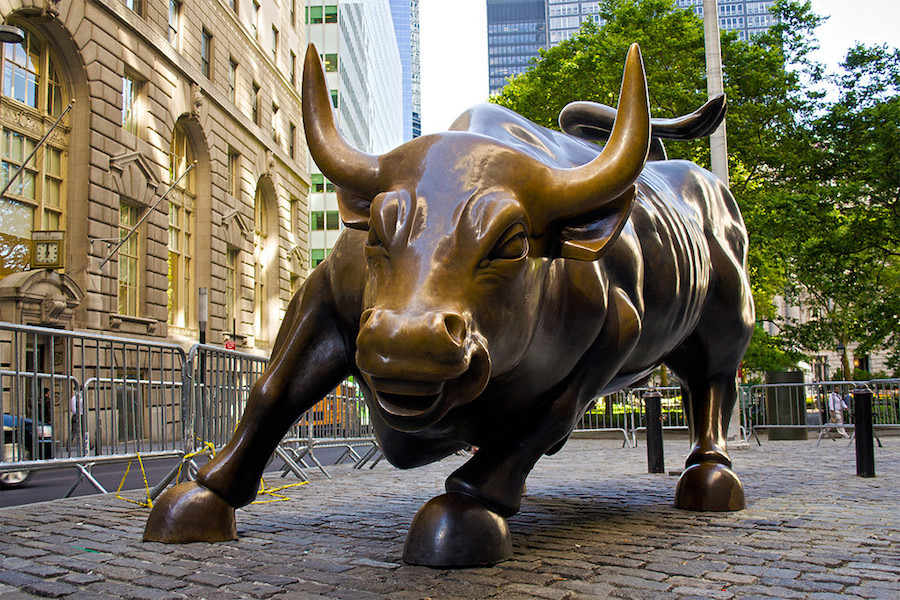
That is well above the cost of roughly $10 to $20 a tonne most global miners spend in extracting the steel-making commodity.
As most top miners, BHP is choosing to return cash to investors rather than spending it on risky new projects or takeovers.
Iron ore takes the lion’s share of BHP’s earnings and the group said in January its realized ore price for the December half had jumped by 33% compared to the same period the previous year.
As most top miners, BHP is choosing to return cash to investors rather than spending it on risky new projects or takeovers. The company said it will pay a record interim dividend of $1.01, up from 65 cents last year.
If iron ore and copper — BHP’s other top commodity, which climbed to its highest level since 2012 on Monday — maintain current levels, analysts believe the company would be able to slash its net debt. They estimate BHP could reduce it by the end of its financial year in June below its $12 billion-$17 billion target, paving the way for another mega divvy.
“BHP’s solid results and H1 dividend, which beat our estimate by 36%, may well move expectations higher for some of its peers reporting this week,” BMO metals and mining expert, David Gagliano, wrote in a note to investors.
The company is the first of its Australian peers to report this week, with all expected to cash in on iron ore booming prices. Rio Tinto (ASX, LON, NYSE: RIO) reports on Wednesday and Fortescue Metals Group (ASX: FMG) on Thursday.
Welcome rally or supercycle?
Driven by China’s sustained recovery and supply disruptions in several markets, including copper and iron ore, the mining industry is enjoying the most benign conditions in more than a decade.
Escalating commodities’ prices has driven top banks and several analysts, including with JPMorgan and Goldman Sachs, to call it the beginning of a new supercycle. According to Bloomberg, global equities are on track to climb for 11 straight sessions — the longest stretch since 2009 — as investors take comfort in progress on the covid-19 vaccine rollout.
“The deployment of vaccines in key economies, albeit with some uncertainty as to timing and efficacy, removes a material amount of downside risk to the short term demand and price outlook for our portfolio commodities,” BHP said Tuesday.
While some economists refuse to call the commodities rally a supercycle, others say the event always looks obvious with hindsight, but are far harder to see at the time.
Some economists refuse to call it a supercycle. They say the term doesn’t quite match what it is happening right now — a forecast two-year bull market that could still be derailed by covid-19.
“With things as volatile and uncertain as they are right now, saying a blanket ‘commodities supercycle’ is a little premature,” Rory Johnston, a Toronto-based managing director and market economist, told Financial Post last week.
“That’s the thing with supercycles. They look obvious with hindsight but are far harder to see at the time,” Andy Home, a columnist for Reuters, wrote in January.
Beyond the immediate picture to the medium–term, BHP sees continued need for additional supply, both new and replacement, across most of the sectors in which it operates.
“Looking even further out, long term demand from traditional end–uses is expected to be solid, while broad exposure to the electrification mega–trend offers attractive upside,” BHP Vice President, Market Analysis & Economics, Huw McKay, wrote on Tuesday.
BHP was not the only top miner to inject further optimism into the sector on Tuesday. Glencore (LON: GLEN) said it is resuming payouts with a $1.6 billion return after scrapping its annual dividend in August.




